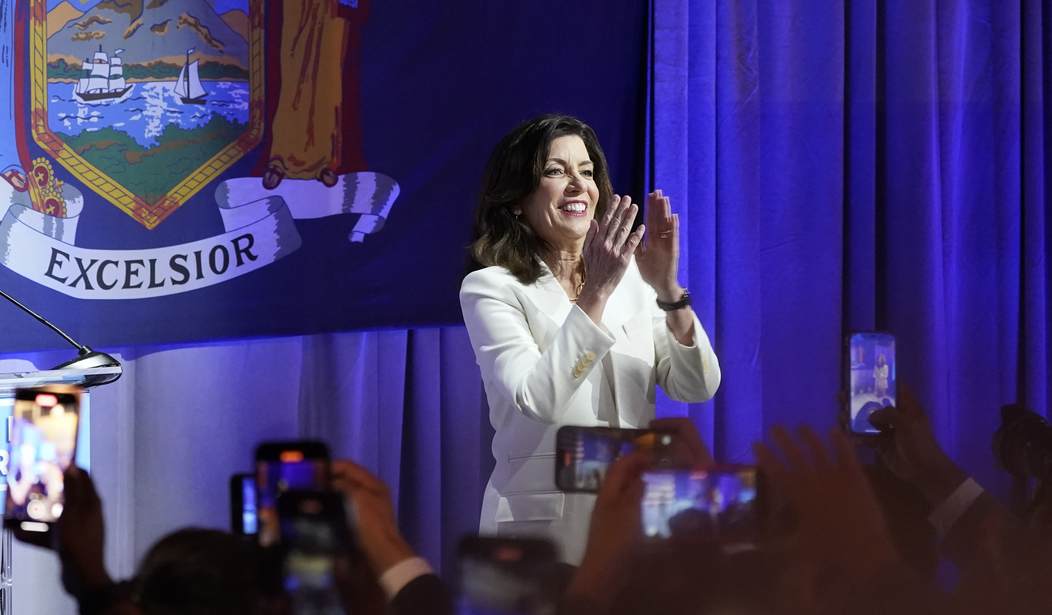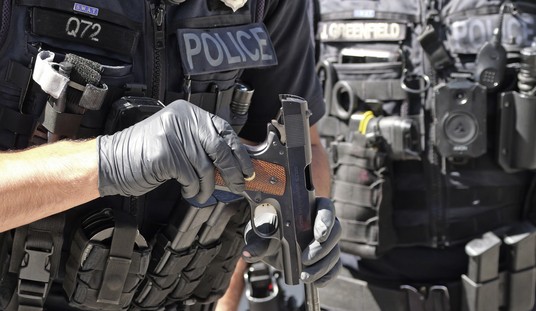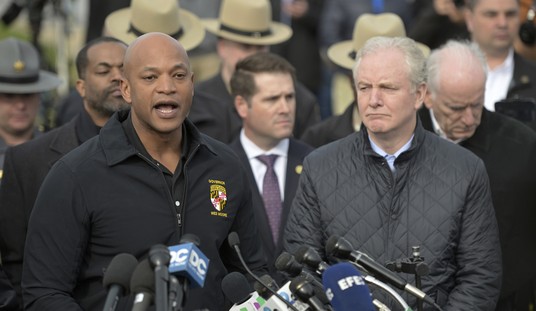I’m guessing we won’t be seeing any stories from the New York Times or the NY Daily News clucking about Gov. Kathy Hochul cozying up with the gun control lobby, despite the howls of protests that we see from mainstream media outlets anytime a politician goes anywhere near an event hosted by a pro-2A group. Politicians just don’t get accused of being in the pocket of the gun control lobby, even when anti-gun groups end up outspending their counterparts to promote candidates.
To be fair, Everytown for Gun Safety’s new partnership isn’t officially a part of Hochul’s re-election bid, but she’s still linking hands with the gun control group in a very high profile fashion just a couple of months before Election Day. The governor announced on Friday that she’s partnering with Michael Bloomberg’s gun ban organization later this month to teach law enforcement agencies around the state how to use New York’s newly expanded “red flag” law.
The training, which has been offered to all law enforcement agencies in New York will be held on August 24, and will cover identifying extreme risk behavior, how to file, execute, and extend an ERPO.
Everytown for Gun Safety Senior Director of State Government Affairs Monisha Henley said, “Red Flag laws are a bedrock gun safety policy that keeps guns out of the hands of individuals in crisis, keeps loved ones and family safe, and protects communities across New York state. We are grateful to Governor Hochul for her continued partnership, and we look forward to continuing to support the state’s ongoing efforts to ensure these laws are effectively implemented.”
Hochul also announced on Friday that the number of Extreme Risk Protection Orders issued in just the past three months has already surpassed the total number of petitions filed in all of last year, with requests by the New York State Police up 93%.
One thing Hochul didn’t highlight, however, is fact that it’s not just the number of petitions filed that are increasing. There’s also a growing number of dismissals of those petitions, especially those requested by the state police. As the Albany Times-Union reported in late June:
The civil cases almost always involve firearms, and whether a person who poses a potential public safety threat should have those weapons seized by police through a court order — either temporarily or for up to a year. The governor’s order was issued days after a mass shooting in Buffalo in which 10 Black people were killed by an 18-year-old white man in what police said was a racially motivated attack.But many of these “Red Flag Law” cases are being dismissed by judges across the state because the troopers and investigators filing the complicated applications with courts are often appearing at the hearings without attorneys and in proceedings in which they have been instructed by the State Police to not make legal arguments, according to correspondence and interviews with people familiar with the matter.Earlier this month, a state Supreme Court justice in Orange County wrote a letter to the state attorney general’s office and the State Police “as a courtesy” informing them that he was requiring their respective offices be notified of applications for final extreme risk protection orders filed by State Police.“State Police investigators and troopers are designated as petitioners in these matters and are required to appear in Orange County Supreme Court to prosecute them,” Justice Craig Stephen Brown wrote. “These law enforcement officials have been appearing without counsel … in these civil proceedings in the Supreme Court. It does not appear their training includes the legal nuances necessary for them to proceed in such a manner in these legal proceedings (rules of evidence, conducting direct and cross examinations, etc.).”Brown noted that Hochul, who also cited mass shootings in Pennsylvania, California and Texas in her May 18 executive order, had “placed a priority on these proceedings” and that the attorney general’s office represents the State Police in other matters.But in a written response dated June 9, Vinita Kamath, an assistant attorney general in charge of the office’s regional office in Poughkeepsie, informed the judge that “our office will not represent (State Police) in these proceedings.”
While supporters of the state’s “red flag” law fret about cases being dismissed because the state police aren’t being represented by attorneys during the ERPO hearings, I’ve yet to hear any concern at all about the lack of legal representation for the subjects of these petitions if they can’t afford to hire an attorney. Unlike criminal cases, public defenders aren’t an option for those who’ve been accused of being a danger to themselves or others, which puts them at a decided disadvantage in court… at least when the state is able to find an attorney to argue in favor of stripping these individuals of their Second Amendment rights for up to a year.
It’s also worth noting that Hochul’s press release on Friday touting the increase in “red flag” orders doesn’t say how many of those orders temporary or final. Under New York’s law, the first step in removing someone’s ability to possess a gun through an ERPO is an ex parte hearing, in which a judge can order guns seized for up to two weeks. After that comes another hearing on whether or not to grant a final order that can last for up to 12 months (and be extended through yet another hearing). According to the Times-Union’s June story, the ex parte orders are being approved in almost every instance, but the same isn’t true when it comes to those final orders.
The governor’s office noted that their records indicate State Police have received temporary approval for roughly 91 percent of the extreme risk protection orders filed since the governor signed the executive order last month. However, police sources said judges routinely approve the temporary orders; it is during the formal hearings seeking the final orders where they said troopers are not receiving legal representation.
How many of these final orders are being approved now? The governor didn’t say, and it looks like it’s virtually impossible for the public to access that kind of data.
This isn’t the biggest reason why “red flag” laws aren’t the magic solution that gun control activists claim them to be, but it’s still important to point out that even while the law is being used more frequently, there are still some fundamental issues that should concern even those who think ERPO’s are a good idea. Instead of expressing concern and lobbying for changes, however, Everytown for Gun Safety is simply encouraging law enforcement to file these petitions at every opportunity; a big red flag of its own for those of us concerned about preventing violent crime while not infringing on the civil rights of law-abiding citizens.









